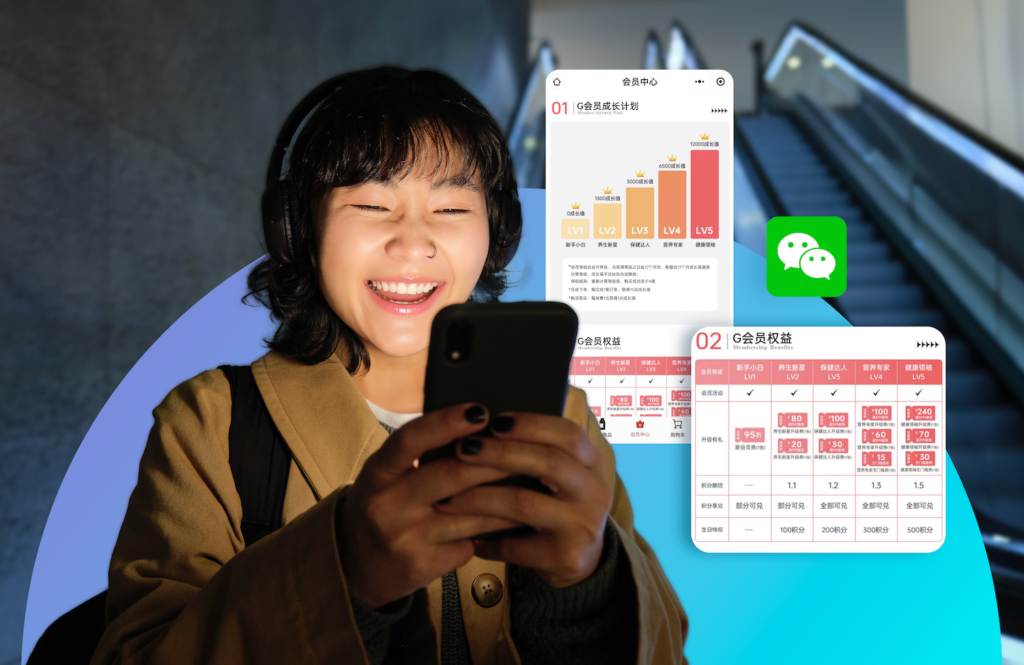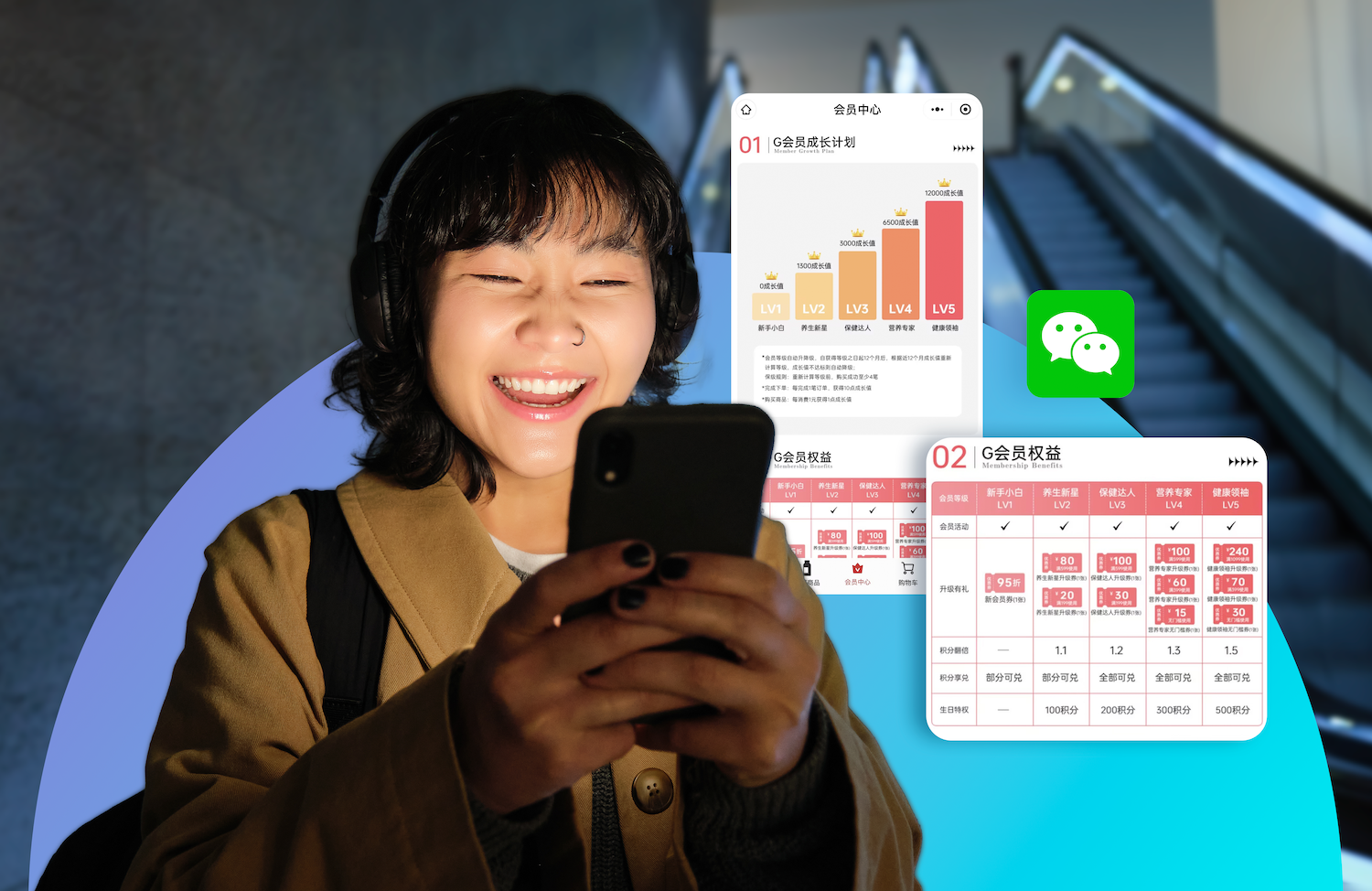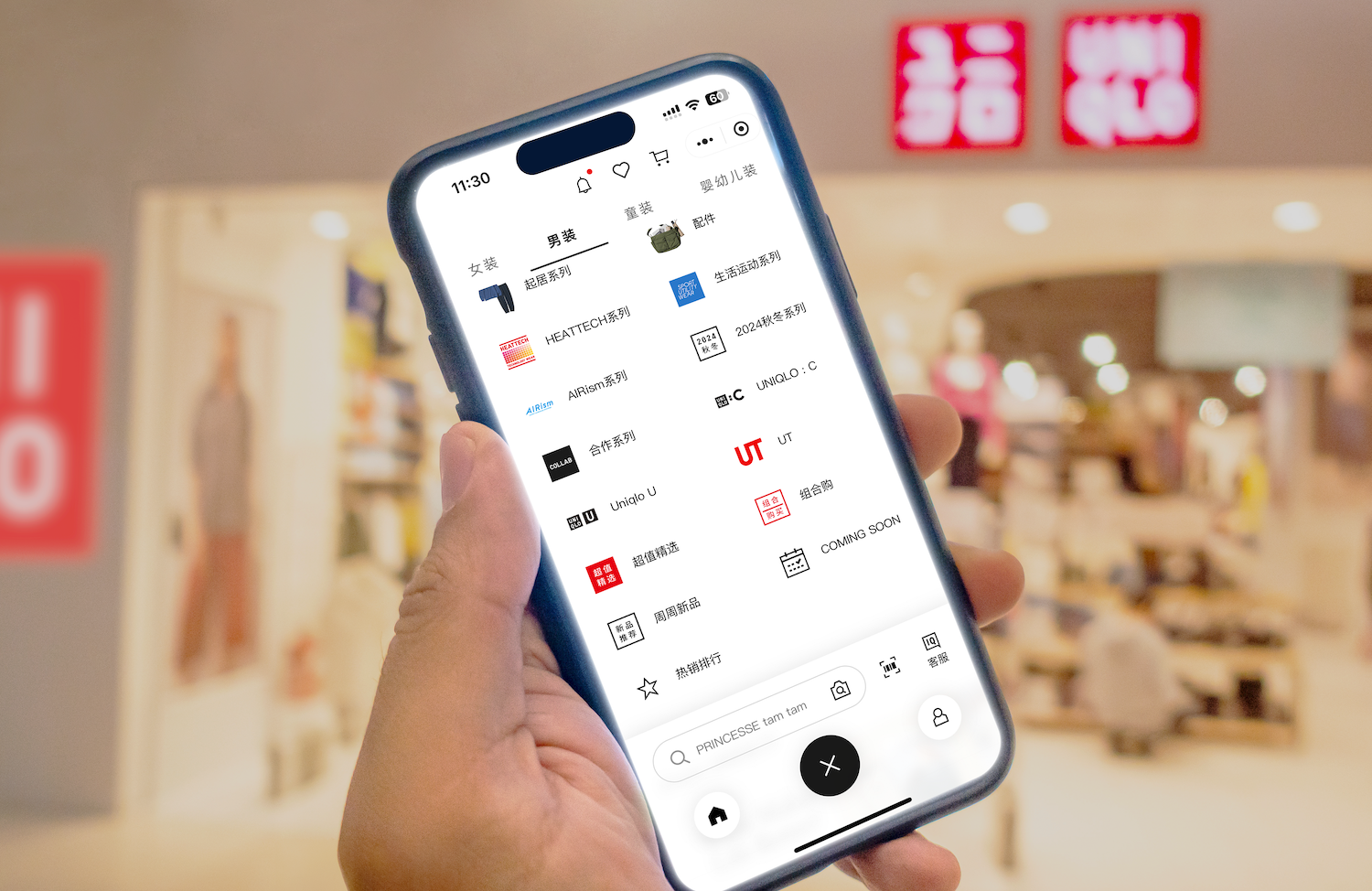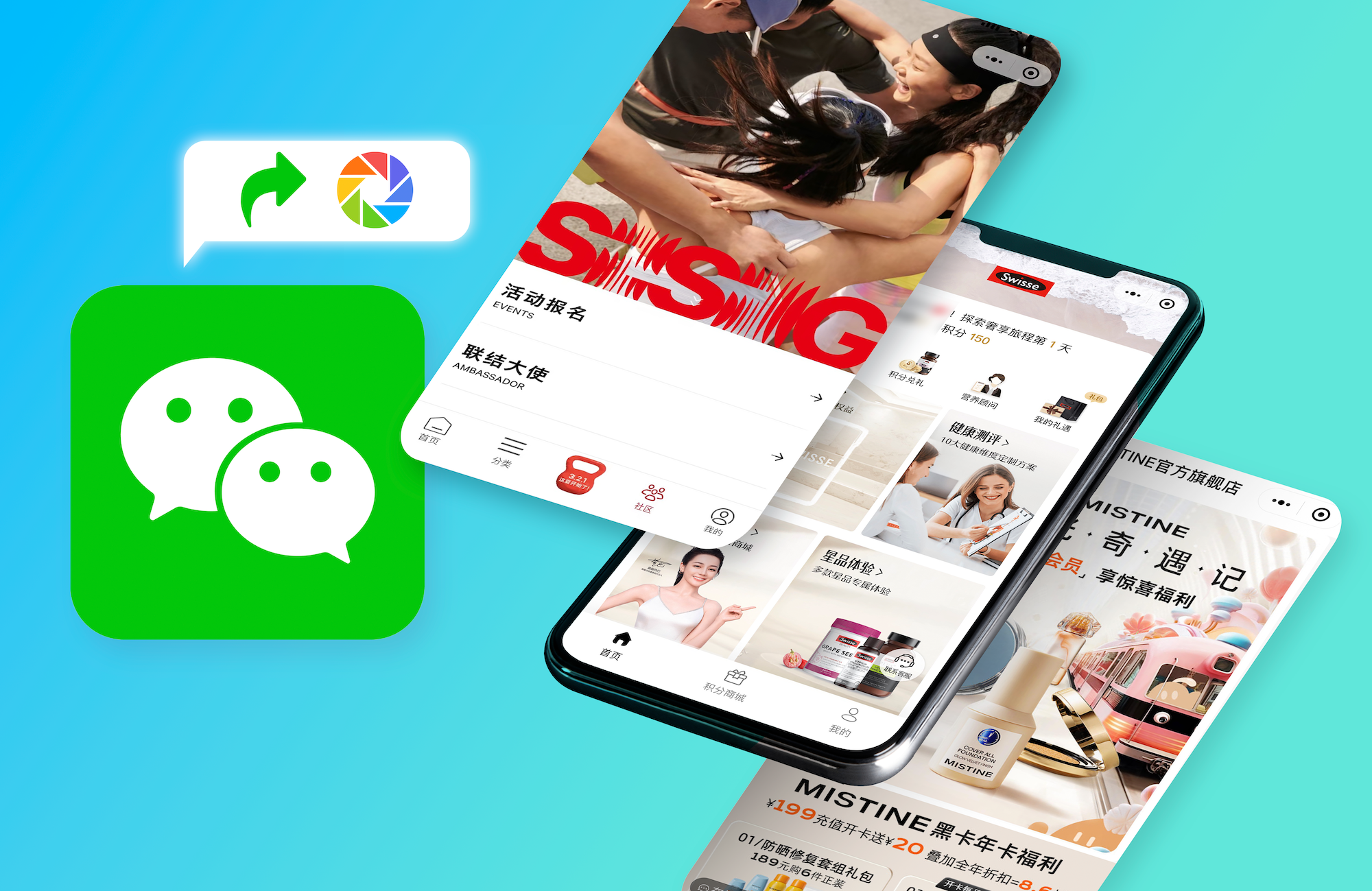After three years of uncertainty, China’s outbound travel market has roared back. More than 155 million overseas trips are expected in 2025, with Southeast Asia, Japan, and Europe leading destinations.
According to data from Skift, around 38% will be first-time outbound travelers, many of whom are navigating foreign destinations for the first time. At the same time, 72% plan to take multiple international trips within the year, signaling a more confident, experience-driven audience.
For both groups, WeChat sits at the center of their digital behavior. First-timers rely on it for trust and familiarity, while repeat travelers value its convenience, loyalty continuity, and integrated payments. Rather than searching on Google or downloading new apps, they expect to research, book, and pay entirely inside the "super app" they already use every day.
This creates a challenge for international hospitality and travel service brands that still depend on online travel agencies or fragmented booking engines that offer little control over data, customer retention, or pricing. Meanwhile, Chinese travelers are bypassing these channels altogether in favor of direct, mobile-first engagement.
TMO helps leading brands unify discovery, booking, and loyalty with WeChat Mini-Program Development Services.
WeChat as a Booking Solution for Service Brands
WeChat isn’t merely a messaging app. For over 1.4 billion users, it is an all-around ecosystem for daily life: a single interface for payments, content, and services. In travel, that translates into a complete digital infrastructure that lets guests move seamlessly from discovery to check-in without leaving the platform.
The same structure that works for hotels also applies to other experience-led services, such as transportation, attractions, dining and local activities all of which can be booked, paid, and reviewed inside WeChat.
Cross-border Reach and Payments
- WeChat Pay now supports transactions in 49 countries with local-currency settlement, making it one of the most accepted payment methods among Chinese outbound travelers.
- Guests can browse room types, select dates, and confirm reservations in their native language with instant confirmation and payment in CNY or local currency.
Built-in Discovery
- Hotels can be found through WeChat Search, QR codes, targeted ads, or the “Mini-Programs Nearby” feature, letting travelers discover properties organically.
- Because Mini-Programs are lightweight and shareable in chat, one satisfied guest can instantly recommend a resort or experience to friends.
Integrated Loyalty and Customer Service
- Membership tiers, vouchers, and reward points can all live within the same Mini-Program, eliminating the need for separate portals or email logins.
- With WeCom integration, hotel staff can follow up directly after a stay, turning guest service into an ongoing relationship rather than a one-off transaction.
We previously wrote about WeChat eCommerce: Is your brand making the most out of it?From H5 Store & Mini-programs, to Service and Subscription Accounts, this is everything you need to know about WeChat's tools for eCommerce.WeChat's different Account Types for Brands and how they set the foundation for Mini-Program bookings.
Streamlined Conversion
Unlike traditional mobile sites, Mini-Programs are hosted inside a trusted, high-frequency environment. Users log in with their verified WeChat ID, removing barriers like account creation or card entry. For brands, that means lower abandonment and higher booking completion rates.
In essence, WeChat collapses the booking funnel: awareness, transaction, and loyalty all occur inside a single ecosystem already familiar to the Chinese traveler.
The End-to-End Guest Journey Inside WeChat
Hospitality brands that succeed with Chinese travelers aren’t just visible on WeChat; they build experiences that unfold entirely inside it. Every stage of the guest lifecycle, from discovery to post-stay engagement, can now be managed within a single WeChat Mini-Program without redirects, App Store detours, or language confusion.
1. Discovery
Travelers encounter brands through WeChat Search, Service Accounts, or Mini-Programs Nearby when exploring destinations. Hotels can also embed QR codes in digital ads, influencer posts, or offline materials. Because these entry points open directly into a Mini-Program instead of a browser, users land on a native, mobile-optimized experience that feels immediate and trustworthy.
2. Booking
Once inside, travelers can browse rooms, compare rates, view amenities, and confirm availability in real time. Integrated WeChat Pay allows one-tap booking without currency exchange issues. For hotels, this means owning the transaction (capturing payment and customer data directly rather than through OTAs).
Some brands extend the same functionality to local experiences like spa appointments, dining reservations, or event tickets all processed within the same interface.
3. Check-In
WeChat Mini-Programs support identity verification and digital keys, enabling self-service check-in for Chinese guests on arrival. The process reduces front-desk load while matching expectations of convenience common in China’s domestic hospitality sector. Guests can also receive automated or personalized in-app welcome messages and itinerary reminders.
4. In-Stay Service
During the stay, the Mini-Program functions as a personalized concierge. Guests can order room service, chat with staff, or explore partnerships with nearby attractions. For resorts or integrated destinations, it becomes a marketplace of services like dining, spa, or transport, unified under the same booking logic.
5. Loyalty and Retention
After checkout, the same Mini-Program remains active for membership management and post-stay engagement. Guests can check accumulated points, receive targeted offers, and rebook future stays instantly. With WeCom integration, hotel teams can send personalized promotions or follow-ups based on stay history.
3 WeChat Loyalty Program lessons from top eCommerce brandsWe explore key eCommerce features from Loyalty Programs in the WeChat mini-program ecosystem & how top brands use them to drive sales. 3 WeChat Loyalty Program lessons from top eCommerce brandsRead more
3 WeChat Loyalty Program lessons from top eCommerce brandsRead more
In practice, this unified journey gives hotels a level of operational control that other platforms can’t replicate. But to see the model in action, it helps to look at how a real hospitality brand approached it.
Use Case: Mini-programs for Luxury Hospitality
For a leading international luxury resort group, the challenge wasn’t as much about visibility as it was about experience continuity. The brand already attracted Chinese travelers through travel agencies and social media, but the digital journey broke once those guests arrived. Booking, membership, and communication were handled on different systems, leaving guests with friction and staff with inefficiency.
TMO Group designed a WeChat Mini-Program that merged these touchpoints into one coherent interface, consistent with the resort’s premium brand, but localized for Chinese travelers’ expectations.
International Luxury ResortA French luxury resort brand partnered with TMO to create a localized WeChat Mini Program that optimizes complex processes and enhances the UX for Chinese users.
Designing the End-to-End Experience
The new Mini-Program became a digital extension of the resort itself:
- Instant booking & payment: Real-time availability connected to the resort’s PMS, confirmed instantly via WeChat Pay.
- Simplified check-in: Integrated ID verification and pre-arrival forms enabled self check-in and digital room keys.
- In-stay convenience: Guests could chat with the concierge, order amenities, or book activities without leaving WeChat.
- Membership integration: Tiered benefits and loyalty points displayed natively; CRM data synced for post-stay campaigns.
Operational Results
- Booking steps reduced from multiple pages to one seamless flow.
- Guest data unified in CRM instead of siloed in OTA dashboards.
- Cross-currency payments streamlined for accounting.
- Most importantly, the Mini-Program gave the resort direct ownership of the guest relationship across all stages.

What Leading Brands Are Doing Right
Other major players in hospitality and travel have built on the same principle: use WeChat not only for transactions but for continuous engagement.
Hilton: Personalization and Cross-Service Integration
Hilton’s WeChat Mini-Program, for instance, extends its brand ecosystem directly into travelers’ daily routines. Users discover exclusive deals available only through the Mini-Program, explore curated travel packages like romantic dinners or city tours, and receive real-time hotel announcements or event updates.
Integration with Hilton Honors means points and membership tiers update instantly after each stay, while built-in customer service chat lets guests reach support without switching apps. Some users can even link their accounts to DiDi, allowing them to book transport directly from the same interface. The result feels like a personalized companion that connects discovery, booking, and mobility all within WeChat’s ecosystem.
- Special offers and limited-time packages available only through the Mini-Program.
- Group coupons and senior discounts managed through enterprise accounts.
- Quick-share buttons that let users forward promotions to friends in WeChat chat.
- WeCom-based online customer service, connecting directly with staff through Hilton’s service account.
- Inside the mini-program, guests can also chooose to download Hilton’s standalone app for deeper engagement, showing how Mini-Programs can act as the gateway to a broader brand ecosystem.
Ctrip: Community and Gamified Retention
Ctrip (China’s largest online travel agency known internationally as Trip.com) uses its WeChat Mini-Program to blend commerce with community. In it, travelers can join seasonal campaigns, play mini-games to earn rewards, or refer friends for bonus points. An AI assistant offers itinerary suggestions and support, while a social feed highlights popular destinations and user-generated travel posts organized by interests such as food, culture, nature, and more. This turns a standard booking platform into a living travel community that keeps users inside WeChat from discovery to post-trip sharing.
From boutique resorts to multinational hotel chains and travel aggregators, the trend is consistent: WeChat Mini-Programs are evolving from booking tools into full-service ecosystems that integrate payments, CRM, loyalty, and community in one place.
They can start simple, with direct bookings and customer chat, and scale into full loyalty or community layers as engagement grows. This modularity is what makes them so powerful for hospitality brands seeking both immediate conversion and long-term relationship building.
Together, these examples show that the same Mini-Program architecture serving hotels can also support transport providers, attractions, and experience-booking platforms which are all part of the same traveler journey.
Business Advantages for Travel and Experience Brands
As hospitality brands adopt WeChat Mini-Programs, the benefits go far beyond convenience. The technology reshapes how hotels operate, market, and retain guests, helping them move from third-party dependence to owned digital ecosystems.
| Dimension | Features | Impact |
|---|---|---|
| Operations | Integrated PMS/CRM, automation | Reduced workload, faster rollouts |
| Marketing | Direct reach, shareability | Lower CAC, stronger conversion |
| Data | First-party insights, re-engagement | Higher loyalty, repeat bookings |
Operational Efficiency
For hotels, Mini-Programs simplify day-to-day operations by connecting front-end guest experiences with backend systems.
Room inventory, loyalty points, and billing can sync automatically with property management systems and CRMs, eliminating duplicate data entry. Guests handle much of the process themselves from pre-check-in verification to in-stay service requests, reducing front desk workload and improving accuracy.
Because WeChat Mini-Programs are built on Tencent’s standardized development framework, they also shorten time-to-launch and lower maintenance costs compared to standalone apps. Many luxury groups now roll out property-level versions within weeks rather than months, adjusting only the branding and localized content.
Marketing and Conversion
From a marketing standpoint, Mini-Programs help hotels reclaim visibility and margins lost to OTAs.
Bookings that happen directly inside WeChat cut third-party commission costs while maintaining high visibility through WeChat Search, targeted ads, and “Mini-Programs Nearby.”
Social sharing inside chats or Moments adds another layer of reach: a guest can instantly share a special offer or itinerary with friends, an organic referral mechanism that online travel agencies can’t easily replicate.
The ecosystem also supports precise segmentation. Hotels can target offers to specific traveler types (honeymooners, families, or members in particular tiers) using WeChat’s native tagging and CRM tools. Combined with loyalty rewards or WeCom re-engagement, these touchpoints consistently convert at lower acquisition cost (CAC) than traditional channels.
Data Ownership and Retention
Every booking through a WeChat Mini-Program creates first-party data the hotel controls. Unlike OTA traffic, where guest profiles remain anonymous, WeChat users book under verified identities tied to their WeChat accounts.
This allows brands to build unified guest profiles, capturing preferences, frequency, and purchase history, and use them for personalized reactivation. Through WeCom, hotels can re-engage guests directly with personalized offers or follow-up messages, all within a compliant, one-to-one chat environment.
Loyalty and membership programs then reinforce that relationship, turning single stays into repeat visits and sustained lifetime value.
Strategic Advantage
Ultimately, the biggest value of WeChat lies in what it replaces: fragmentation.
Instead of running parallel systems for booking, communication, and loyalty, hotels can manage every guest interaction within one platform trusted by Chinese travelers. This control over user data, cost, and engagement gives brands strategic independence and the ability to build genuine guest relationships without being filtered through intermediaries.
WeChat Mini-Programs shift hospitality from distribution-led to relationship-led.
For global brands competing for Chinese travelers, that shift is the new competitive frontier.
Suggested Reading: 8 Essential New Retail Mini-program Features used in ChinaWeChat mini-program features from barcode-enabled shopping to delayed login that will boost your O2O or New Retail eCommerce operation.8 essential features from China-retail Mini-Programs that hospitality brands can apply too.
Transforming Guest Engagement on WeChat with TMO
The hospitality industry is entering a new phase of digital maturity. As Chinese travelers resume international trips, they’re not rediscovering hotels through traditional channels, rather they’re navigating entirely within ecosystems they already trust. Among those, WeChat stands alone in combining discovery, booking, payment, and loyalty in one place.
Mini-Programs are central to that shift. They let hospitality brands reclaim control over guest relationships, data, and margins while delivering the frictionless digital experience Chinese travelers expect. From independent resorts to global chains, the pattern is the same: brands that integrate into WeChat’s ecosystem are converting faster, spending less, and staying closer to their guests.
For hotels and resorts, this means being part of the digital environments that shape the modern travel journey. As OTAs and paid media become more competitive, direct engagement through WeChat offers a sustainable path to growth.
Booking on WeChat is becoming the new standard for how Chinese travelers connect with overseas hospitality, transport, and experience brands worldwide.
Looking to turn your WeChat presence into a direct booking and engagement channel? Reach out to us to discuss your mini-program and integration needs.













